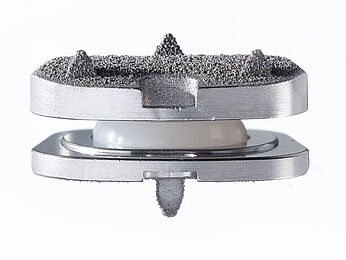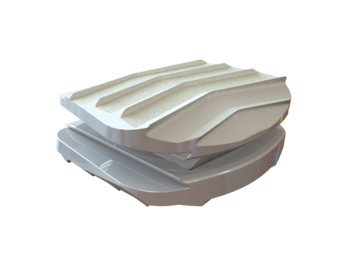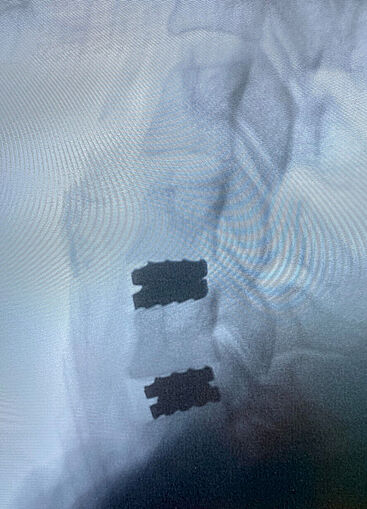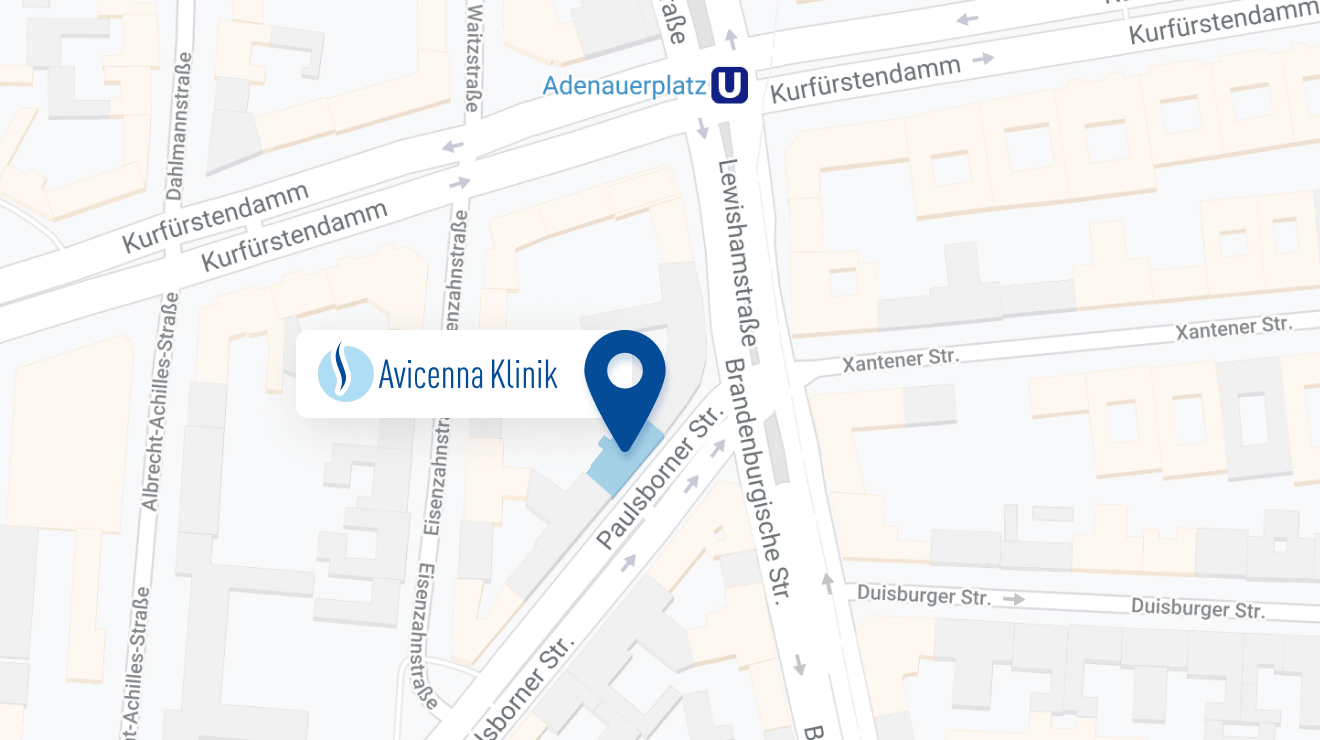What is intervertebral disc prosthesis?
Medicine studies advance worldwide every day. The big achievements include implants, even hearts and lungs can be implanted to save people lives. One of these great advances is the implantation of intervertebral disc prosthesis, used to relieve pain and thus improve the quality of life. The artificial disc today has found a good place in the surgical treatment of disc damage and spinal disease.
The goal of implantation is to maintain the mobility and functionality of the spinal column by establishing a solid, bony connection with adjacent natural vertebrae after surgery. Disc replacement is available for use on the cervical and lumbar spine. The disc prosthesis consists of two metal plates (titanium or a cobalt-chromium-molybdenum mixture) and a core, usually made of polyethylene. They vary in size, shape, height and angle.
When is the implantation of intervertebral disc prosthesis necessary?
When is the implantation of intervertebral disc replacement necessary? Basically after detailed discussion with our patients and after determining the cause of your complaints, we start with a targeted individual treatment. What is of course needed is your active participation, because even the best surgery cannot help if patients do not do anything for themselves. The implantation of intervertebral disc prosthesis is one of several treatment options we offer.
If conservative therapies (for example, physiotherapy and medication pain treatment) in cases with strong disc degeneration associated with herniated discs or protrusions do not work, we can replace the affected disc with disc prosthesis. There are also patients that suffer from disc damage at different levels of the spine. What gives advantage to the disc replacement therapy over a stiffening operation (spinal fusion) is that it maintains the mobility of the spine.
If you have osteoporosis, a tumor, a bacterial infection of the spine or advanced osteoarthritis of the small vertebral joints, a replacement of the intervertebral disc is not possible. In these cases, other alternatives would be considered.
Operation course - implantation of the disc-disc prosthesis
Under general anesthesia and via skin incision of 4-5 centimeters on the front side of the neck and with the help of special surgical microscope and micro instruments we reach the affected intervertebral disc. Here at first we remove the degenerated disc completely from the space between the vertebrae. If disc material (herniated disc) is present in the spinal canal, it will be removed. Ossifications are also removed in order to give mobility to the segments. Then we bring the vertebrae back to their original height and insert the prosthesis into the gap between them. There it serves as a future placeholder and movement segment.
Through the rough surfaces of the metal plates, the prosthesis grows in the following weeks with the adjacent vertebral bodies, which means that the bone material grows in the coated base and covers the plates of the intervertebral disc prosthesis. This give permanent fixation of the prosthesis to the vertebral bones but between the 2 blades of the prosthesis movement is available.
Right after surgery
The procedure takes place under general anesthesia and lasts approximately 60 minutes when 1 segment is affected. After the procedure, our competent team will welcome you in the recovery room where, as usual, your heart and lung functions are going to be monitored. Well-trained nurses won't leave you alone. The day of the operation we recommend you to rest well. Slight temporary swelling or muscle tension are treated.
The next days after the operation
The implantation of disc prosthesis requires the highly concentrated use of a first-class surgical team. Patients must follow doctor's instructions carefully in order to maintain the successful results of the treatment. Basically, your inpatient stay will be of about 10 days but for a total recovery you will have to wait at least 4 weeks. Patients will also wear a soft neck collar for 4 weeks. The frequency and direction of the neck movements must be determined by the doctor. Lifting and carrying heavy loads should be avoided. Before being discharged, your doctor will prescribe you a suitable for you physiotherapeutic program for general relaxation of the muscles and later for their strengthening. The inability to work will be of about 4-10 weeks in dependence of art of your activities. Once you feel that the affected segments are “normal” again, you can start to move your spine. However: It is recommended not to drive you yourself for at least 4 weeks, as well as cycling. But you can be driven in this time. Golf and tennis are allowed, but after about ten weeks.
Advantages of an intervertebral disc prosthesis
Normally, with the implantation of intervertebral disc prosthesis you can expect to have a painless era in your life. Thanks to the modern disc prosthesis you get back a natural mobility of your cervical spine. You will especially appreciate that because the movement segment was significantly disturbed before the procedure. Another advantage is that by implanting one of these modern prostheses, the affection of the adjacent segments (the adjacent intervertebral discs) is significantly reduced. The surgery allows a tissue-conserving approach (without damaging nerve roots) so you can recover quickly.
The Avicenna Clinic in Berlin is always willing to help you
Since the year 2001, the Avicenna Clinic is based in Berlin. Our doctors have at least 25 years of international experience in their respective fields (neurosurgery, spinal surgery, anesthesia, and orthopedics).
If you have severe back pain, a herniated disc or a suspected herniation, please contact us using the following information:





